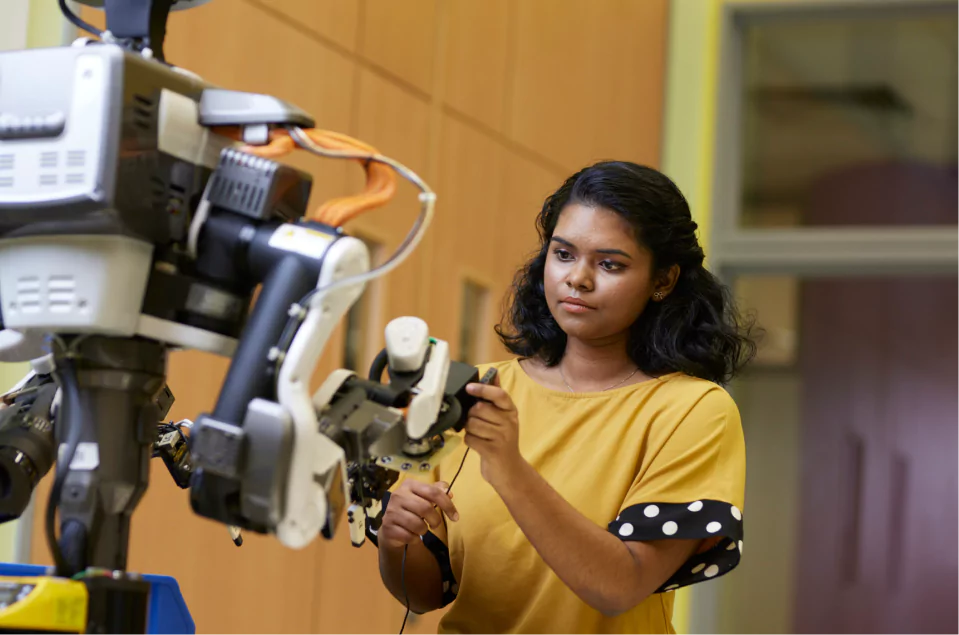Sharpen your expertise with NYP's industry-aligned Specialist and Advanced Diplomas
Industry-Driven
Stay ahead of the curve in your chosen field. Our curriculum, co-developed with industry experts, remains on top of the latest developments in business and technology.
Immersive Learning
Be guided by industry veterans and empowered by cutting-edge technologies. Our interactive and dynamic curricula create an engaging and immersive environment that will help you thrive.
Stackable Modules
Structure your course, your way. Achieve your academic and career goals with maximum flexibility and customisation.
-
Post-Diploma programmes are intended for existing diploma or degree holders who either have entered or wish to enter sectors different from what their prior diploma courses trained them for, and for those who want to deepen their knowledge and skills/or develop specialisations within their trained/new domain areas.
-
Both are post-diploma qualifications. The key difference between Specialist and Advanced diplomas lies in their duration and scope of training.
- Specialist Diploma courses, lasting between 240 and 300 hours, can typically be completed in about a year or up to two years. They offer deeper specialization within a specific discipline and comprise two Post-Diploma Certificates (PDCs).
- On the other hand, Advanced Diploma courses, spanning 480 to 600 hours, usually take about a year to a maximum of three years to complete. They provide a broader scope of training and include four Post-Diploma Certificates (PDCs), allowing for more comprehensive skill development.
-
Modular Certificates (MCs) are obtained upon completion of prescribed modules from the Diploma course.
Post-Diploma Certificates (PDCs) can be obtained with a culmination of the related modules completed from the Post-diploma course such as Specialist Diploma or Advanced Diploma.
This arrangement is great for working adults who need the flexibility of time as they can choose to complete modular courses whenever they have the time and build towards the attainment of either the Diploma or Post-Diploma qualification.
-
Industry Partnerships and Integration
NYP is known for its strong ties with industry partners, allowing students to gain real-world experience through internships, projects, and collaborations with companies. This integration with the industry ensures that NYP graduates are well-prepared for the demands of the workforce.


